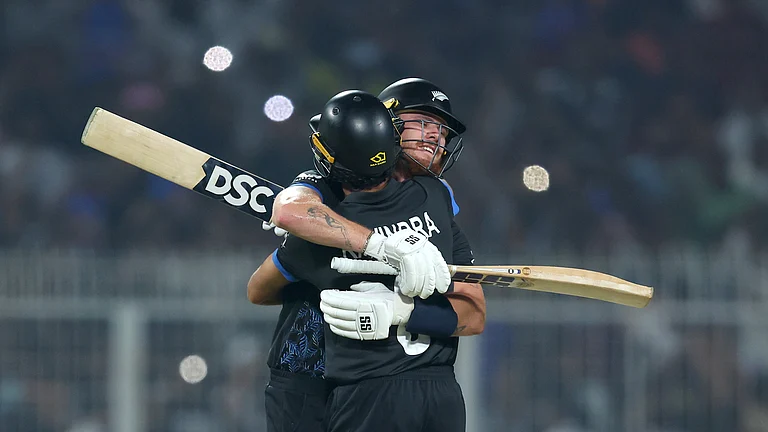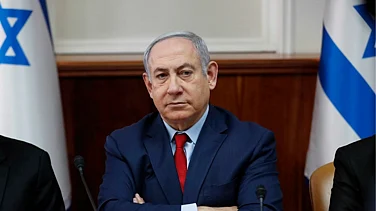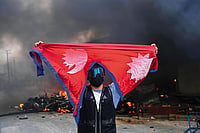An Iranian organisation has called writer Salman Rushdie a "living dead" and has declared an award for his attacker, according to a report.
Reuters reported that Foundation to Implement Imam Khomeini's Fatwas has declared the award of 1,000 square metres of farmland to the man who attacked Rushdie in the United States last year.
Rushdie was stabbed last year at a event in New York state of the United States. While Rushdie survived the attack, he lost one eye and continues to suffer from restricted movement in his hands and also faces psychological trauma from the attack, according to a profile in The New Yorker's February issue.
Rushdie's attacker was identified as 24-year-old Hadi Matar, an admirer of former Iranian Supreme Leader Ayatollah Khomeini — who issued a fatwa against Rushdie in 1989 over his novel The Satanic Verses.
What did Iranian organisation say?
The Iranian organisation Foundation to Implement Imam Khomeini's Fatwas praised the attack on Salman Rushdie and called it "brave", according to Reuters.
It reports the organisation also said the attack on Rushdie would make Muslims happy.
It quotes the organisation's secretary Mohammad Esmail Zarei as saying: "We sincerely thank the brave action of the young American who made Muslims happy by blinding one of Rushdie's eyes and disabling one of his hands. Rushdie is now no more than living dead and to honour this brave action, about 1,000 square metres of agricultural land will be donated to the person or any of his legal representatives."
Salman Rushdie and Iran
Salman Rushdie's novel The Satanic Verses was criticised by large sections of Muslims across the world as being insulting to Prophet Mohammed. While some criticised him, others threatened him and put bounty on his head.
Former Iranian Supreme Leader Ayatollah Khomeini issued a fatwa on Rushdie and an Iranian entity put a bounty on his head. The initial bounty amount was raised to $2.5 million in 1997 and to $3.3 million in 2012.
For a long time, Rushdie lived with police protection as he faced constant threats to his life. Demonstrations were held against him and riots also happened in India and Pakistan over the novel.
Two translators of Rushdie's novel, Hitoshi Igarashi and Ettore Capriolo, were also attacked. Igarashi died in the attack. The New Yorker in a profile this month noted the book’s Norwegian publisher, William Nygaard, was fortunate to survive being shot multiple times.
Who was Salman Rushdie's attacker?
Salman Rushdie was on stage along with friend Henry Reese when an attacker charged at him and began stabbing him. Reese and others soon overpowered the attacker and Reese was also stabbed around one of his eyes.
The attacked was identified as 24-year-old Hadi Matar. He said in an interview later that he was surprised to know Rushdie survived the attack.
Matar has been revealed as an admirer of the former Iranian Supreme Leader Ayatollah Khomeini. An article in The New Yorker notes that Matar used the photo of Iran's current Supreme Leader Ayatollah Khamenei as his profile photo on his email account.
Matar told The New York Post in an interview that he has only read two pages of The Satanic Verses of Rushdie.
Matar also said he does not like Rushdie, adding that he "attacks" Islam.
He said, "I don’t like the person. I don’t think he’s a very good person. I don’t like him. I don’t like him very much...He’s someone who attacked Islam, he attacked their beliefs, the belief systems."
Though an admirer of the Iranian Supreme Leader, Matar also denied being connected to the Iranian Revolutionary Guard Corps, the sword-arm of the Supreme Leader that often operates abroad on state agenda. It was earlier reported that he was connected with an extremist Shia Muslim organisation.





















